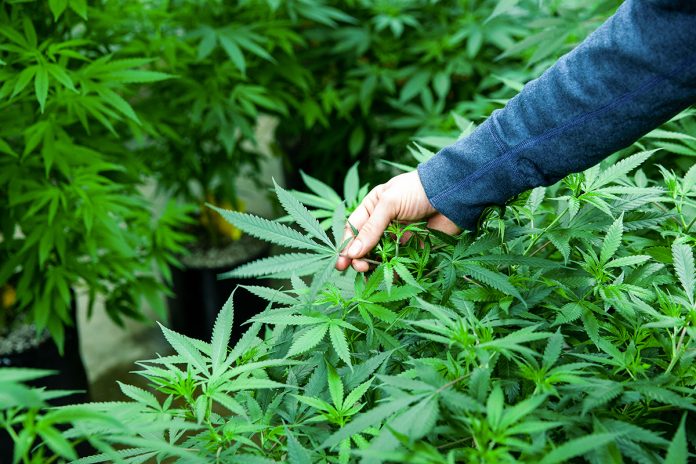Here, Josh Smith talks us through the current pandemic and the recent history underlying the fight for legalising medical cannabis
We find many things to which the prohibition of them constitutes the only temptation.” – William Hazlitt
When the world is in lockdown, how do you justify diverting valuable time, energy and resources into a “recreational drug”? This is the current situation the world is in. The last few years have seen a flurry of countries and states legalising medical and recreational cannabis. In addition, hemp, a type of cannabis with a low-THC: high-CBD ratio has recently begun a resurgence.
The unexpected market sensation
Cannabidiol (CBD) has become a market sensation the world over and has put added pressure on governments to find a way to move forward and speed up legalisation, but many have tried to split hairs and exclude medical and recreational cultivars of the same plant. Meanwhile, entrepreneurs and research organisations have begun rediscovering cannabis fiber, which has amazing potential as a source for plastics, building materials, paper (hemp fiber was a major source of paper pre 1930s); clothing and so many other useful products. With so many uses, this one plant has the ability to change our world. We are looking for solutions for our consumer waste, deforestation and other environmental destructions, when one part of the solution has been in front of us the whole time, forgotten. Why forgotten? In part because some cultivars of that plant make a person using it feel “high”. Here in the US we have forgotten that hemp was extensively grown for fiber during WWII and planting was encouraged by the US government.
According to some state archives, northern states produced so much hemp that they were able to grow two outdoor crops per year. Then the prohibition pushes came again, and cannabis became an undesirable scourge on society. Seventy years later, that trend is reversing. Eleven states and Washington D.C. have legalised full recreational cannabis and the vast majority of other states have approved some form of medical cannabis program. On the other side of the globe, Germany has a fast-growing medical program and Lebanon just became the first Arabic nation to legalise the cultivation of cannabis. As 2020 began, many other countries were looking at various versions of legalisation over the coming months and years.
COVID-19: How did it hit the industry?
Then came the black swan event, Covid-19. As a world we watched country after country close their borders, shut down their entire economies, and citizens hide themselves away in the hopes that a never-before-seen virus could be stopped with minimal human tragedy. As we begin to once again step outside our homes and businesses begin to start up their operations, advocates might wonder, what now? Has much of our hard work gone to waste? With all of the other problems’ nations and states face, why would cannabis legalisation be anywhere but the bottom of the pile? For all the activists out there, I think this is the perfect time to address cannabis legalisation and to convince many of the abolitionists /prohibitionists why it should no longer be banned.
The problem of alcohol
Why? As with many things in this world, the biggest reason is money. In 2019 it’s estimated that the US received 9.99 billion dollars from tax revenue derived from alcohol sales. At the same time the European cannabis retail market was valued at 240 million euros (Marijuana Business Daily 5/6/2020) and THC-containing cannabis retail sales in the US are projected to reach 23 billion dollars by 2025. Why wouldn’t a cash starved country reeling from stimulus and emergency spending look at an easy, low-risk option for a new tax revenue source? In the US, at least, one of the major reasons’ states began to legalise medicinal and recreational cannabis were the additional taxes it provided. Once states began to see how significant these revenues could be the decades old stance of prohibition began to shift.
The arguments from many of these proponents are, why is alcohol, which kills an estimated 88,000 US citizens per year (National Institutes of Health), legal the world over, but a plant that cannot cause death by overdose remains a horrible scourge on the world (NORML). As a rebuttal, those that would like cannabis to remain prohibited, or limited to medical use only state that not enough research has been performed to prove that it isn’t harmful. This is only partially true. It’s true that outside of one lab in the southern US that was regulated to the point of uselessness, the US has not done much research since the 1960’s and 1970’s. Europe may be a bit more lenient to cannabis in comparison, but there really have only been a handful of studies over the decades. At the same time, a few countries lead by Israel have been extensively studying the medicinal uses of cannabis while the rest of the world seems to have forgotten. At the forefront is Dr Raphael Mechoulam Ph D. who has been studying cannabinoids and their receptors in the human body for over 45 years. Most of the information we have today is from Dr Mechoulam or derived from his works.
What comes next for medical cannabis?
So, who is right? Like most things in life, the answer is complicated. It’s not simply black or white but lies somewhere in the grey, and as usual, it’s the dealing in absolutes that causes most of the problems in this industry and society. Are there downsides to cannabis? Absolutely, and anyone that denies the effects of psychological addiction and potential for abuse is doing a disservice to their cause. Is there a large potential upside for cannabis? Without a doubt, but too many snake-oil salesmen are trying to claim that cannabis and its products are not only medical miracles but can single handedly save the world with its other potential uses. This puts us in a catch-22.
Most governments won’t make a substance legal until it can be shown to be effective and safe in the correct situations and document which ailments it can actually treat, but if a substance isn’t legal, how can it be put through proper clinical trials to understand exactly what it’s benefits and downsides are? Unless something changes, these two sides will be stuck fighting each other in a battle where no one wins, rather than expanding on the science and uses of this amazing plant which is so much more than just a drug to get you high.
What next for CBD?
As we begin to reemerge and rebuild society after such a huge shock to our global and national systems, I thoroughly expect many nations and states that were “on-the-fence” or ambivalent to move quickly towards some form of legalisation and the taxes that it brings. The faster this shift in policy occurs, the faster we begin to see the kind of peer-reviewed and clinical studies we have come to expect in western society along with the other benefits of better-quality control, fewer criminal charges and all the costs associated with law enforcement of a controlled substance.
Therefore, it seems to me that in today’s turbulent economic climate, if you were serious about addressing the needs of your citizens and countries and you had a choice, why wouldn’t you be moving forward with legalisation?
Please note: This is a commercial profile












Yes i believe so much in cannabis &i consume it daily after work!I believe its medicine and i wonder why the world doesnt legalise it so that those who abuse it can stop…i have had it for 10yrs and i don have one single complain of it!
Im loving it much and also i can do some days without it though toooooo boring for me
I am very very scared of covid vaccine and i just want to stay away from it for now!
Marijuana is the Holy Herb so i believe!Em Rasta,so it means alot for me
I also agree 100 percent! Legalizing cannabis should be done in All states. I’ve been using cannabis for a long time, and it gets me through the long day of chronic pain,and MS. I’m getting my medical card, but JUST MAKE IT LEGAL! Alcohol is worse, and kills more than cannabis.